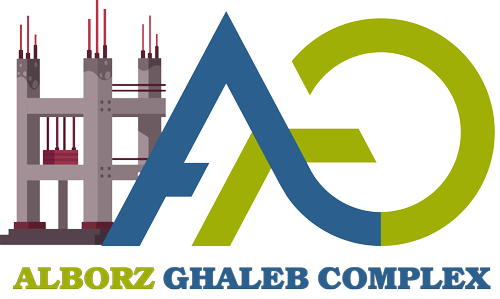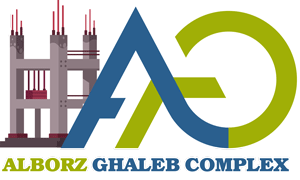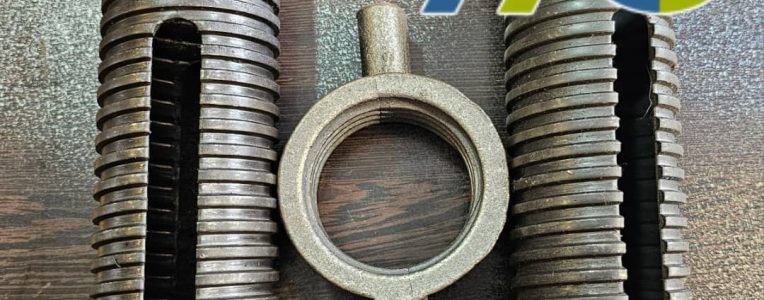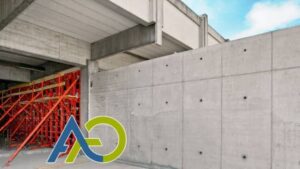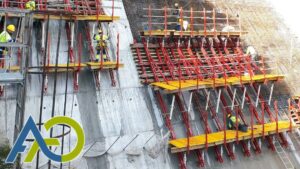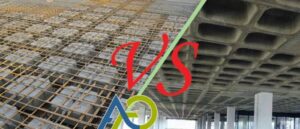What Are Prop Sleeves and Why Are They Essential?
Prop sleeves, also known as shoring prop sleeves or scaffold prop sleeves, are critical components of construction prop jacks, enabling precise height adjustments and supporting heavy loads in concrete formwork projects. Typically crafted from ductile iron or steel, these sleeves ensure the stability and strength of concrete structures, such as joist-and-block ceilings or waffle slabs. Selecting high-quality prop sleeves enhances project safety and reduces maintenance costs.
At Alborz Ghaleb, with over a decade of expertise in manufacturing construction equipment, we provide durable and standard-compliant shoring prop sleeves for various construction projects. Our products, such as crosshead prop jacks and Iraqi-style prop jacks, utilize premium scaffold prop sleeves for optimal performance. This guide covers everything about prop sleeves: technical specifications, applications, buying tips, maintenance, and safety considerations. For expert consultation or purchases, contact Alborz Ghaleb at: +98 912 139 0683.
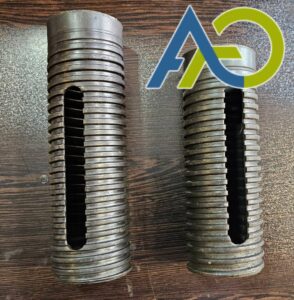
Buying Guide for High-Quality Shoring Prop Sleeves
What Are Prop Sleeves? Types and Specifications
Prop sleeves are integral to construction jacks, allowing precise height adjustments. These components, typically designed as a screw-and-nut mechanism, are positioned at the top of prop jacks. Prop sleeve diameters and materials significantly impact their performance. They are produced in two primary types:
1. Rolling (Cold-Rolled) Prop Sleeves
Cold-rolling forms shoring prop sleeves through pressure and shaping without material removal, preserving the component’s strength.
- No Material Removal: Maintains material integrity, enhancing durability.
- High Surface Quality: Offers smoother surfaces (up to 32 microns better than machined sleeves), increasing resistance to wear and fatigue.
- Greater Strength: Cold-rolling compresses the material’s crystalline structure, improving yield strength and hardness.
- Applications in Prop Jacks: Typically made from pipes with prop sleeve diameters of 60mm and a 3mm thickness, with sleeve lengths of 17cm or 20cm and pitches of 6mm, 8mm, or 9mm.
Advantages:
- Preserves material strength.
- Ideal for high-volume production with speed and precision.
Applications:
- Used in Iraqi-style or export-grade jacks and crosshead prop jacks. Explore our Prop Jacks for Construction for more details.
2. Machined Prop Sleeves
Machined scaffold prop sleeves are created using cutting tools like lathes, dies, or taps, often for specialized or low-volume production.
- Material Removal: Cutting reduces the cross-sectional area, potentially lowering strength.
- Sleeve Quality: May have lower surface quality compared to rolling, making them less resistant to wear and tensile forces.
- Applications in Prop Jacks: Typically produced with a 3mm thickness and lengths of 17cm or 20cm, not using the rolling method.
Advantages:
- Suitable for low-volume production or harder materials not suitable for rolling.
Disadvantages:
- Reduced strength due to material removal.
- Higher cost for large-scale production.
Applications:
- Used for prop jacks requiring fine pitches (e.g., 6mm) for precise connections.
Comparison of Rolling vs. Machined Shoring Prop Sleeves
| Criteria | Rolling Prop Sleeves | Machined Prop Sleeves |
|---|---|---|
| Production Method | Cold-rolling, no material removal | Cutting with lathe, die, or tap |
| Strength | Higher (due to crystalline compression) | Lower (due to material removal) |
| Surface Quality | Smoother (up to 32 microns better) | Lower quality |
| Production Speed | High, ideal for mass production | Slower, suited for limited runs |
| Cost | Cost-effective for large-scale | More expensive for mass production |
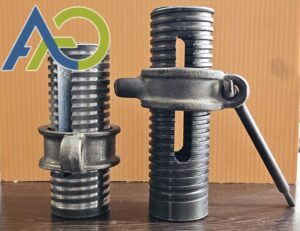
Technical Specifications of Alborz Ghaleb Shoring Prop Sleeves
The performance and safety of scaffold prop sleeves depend on their technical specifications. Below are the standard specifications for Alborz Ghaleb’s sleeves:
| Feature | Specification |
|---|---|
| Prop Sleeve Diameter | 60mm |
| Pipe Thickness | 2.5mm or 3mm |
| Sleeve Length | 17cm or 20cm |
| Nut Material | Ductile iron (dactile) |
| Thread Pitch | 6mm, 7mm, 8mm, or 9mm |
| Production Method | Rolling |
Applications of Scaffold Prop Sleeves
Shoring prop sleeves are versatile and used in various construction scenarios, including:
- Concrete Ceiling Formwork: Supporting joist-and-block ceilings or concrete slabs during curing.
- Waffle Slab Construction: Proper underpinning is critical for waffle slabs, and high-quality prop jacks with reliable scaffold prop sleeves are essential. Learn more about our System Scaffolding for related solutions.
- Industrial Projects: Used in heavy structures like bridges and tunnels.
- Residential Buildings: Supporting multi-story ceiling construction.
- Renovation Projects: Reinforcing and repairing older structures.
Benefits of High-Quality Shoring Prop Sleeves
- Enhanced Safety: High-quality scaffold prop sleeves prevent slippage or jack failure.
- Cost Savings: Durable sleeves reduce the need for frequent replacements.
- Precise Adjustments: Allows millimeter-accurate height adjustments.
- Corrosion Resistance: Ductile iron or galvanized steel extends product lifespan.
Safety Tips for Using Scaffold Prop Sleeves
- Quality Check: Use high-quality sleeves (e.g., ductile iron) to prevent nut slippage.
- Gradual Adjustment: Adjust jack height slowly to ensure even load distribution.
- Periodic Inspection: Check prop sleeve diameters and surfaces for wear or cracks before each use.
- Engineering Supervision: Installation and adjustments should be overseen by a structural engineer.
Maintenance of Shoring Prop Sleeves
- Cleaning: Clean sleeves with water and a brush after each use.
- Stain Removal: Use mild detergents to remove concrete residue.
- Dry Storage: Store in a dry environment to prevent rust.
- Repairs: Address minor cracks with welding or resin.
For durable options, explore Alborz Ghaleb’s Iraqi-style prop jacks.
Pricing Factors for Shoring Prop Sleeves
The cost of scaffold prop sleeves depends on several factors:
- Sleeve Type: Rolling sleeves are generally more cost-effective than machined ones.
- Nut Material: Ductile iron nuts are pricier than steel ones.
- Prop Sleeve Diameters and Lengths: Longer sleeves (20cm) cost more than shorter ones (17cm).
- Production Quality: Standard-compliant sleeves are more expensive.
- Order Volume: Bulk purchases often come with discounts.
FAQs About Shoring Prop Sleeves
What are prop sleeves and their uses?
Shoring prop sleeves are components of construction jacks used for height adjustment and load-bearing in concrete formwork, such as joist-and-block ceilings or slabs.
What’s the difference between ductile iron and steel prop sleeves?
Ductile iron sleeves offer higher durability and corrosion resistance, while steel sleeves are more cost-effective but less resistant to wear.
How to buy high-quality scaffold prop sleeves?
Choose sleeves from reputable manufacturers like Alborz Ghaleb, ensuring compliance with standards and proper material (e.g., ductile iron).
What’s the price of shoring prop sleeves in 2025?
Prices vary based on type, material, and order volume. Contact Alborz Ghaleb at +98 912 139 0683 for a quote.
How to maintain scaffold prop sleeves?
Clean after use, store in a dry environment, and inspect prop sleeve diameters regularly for wear or damage.
